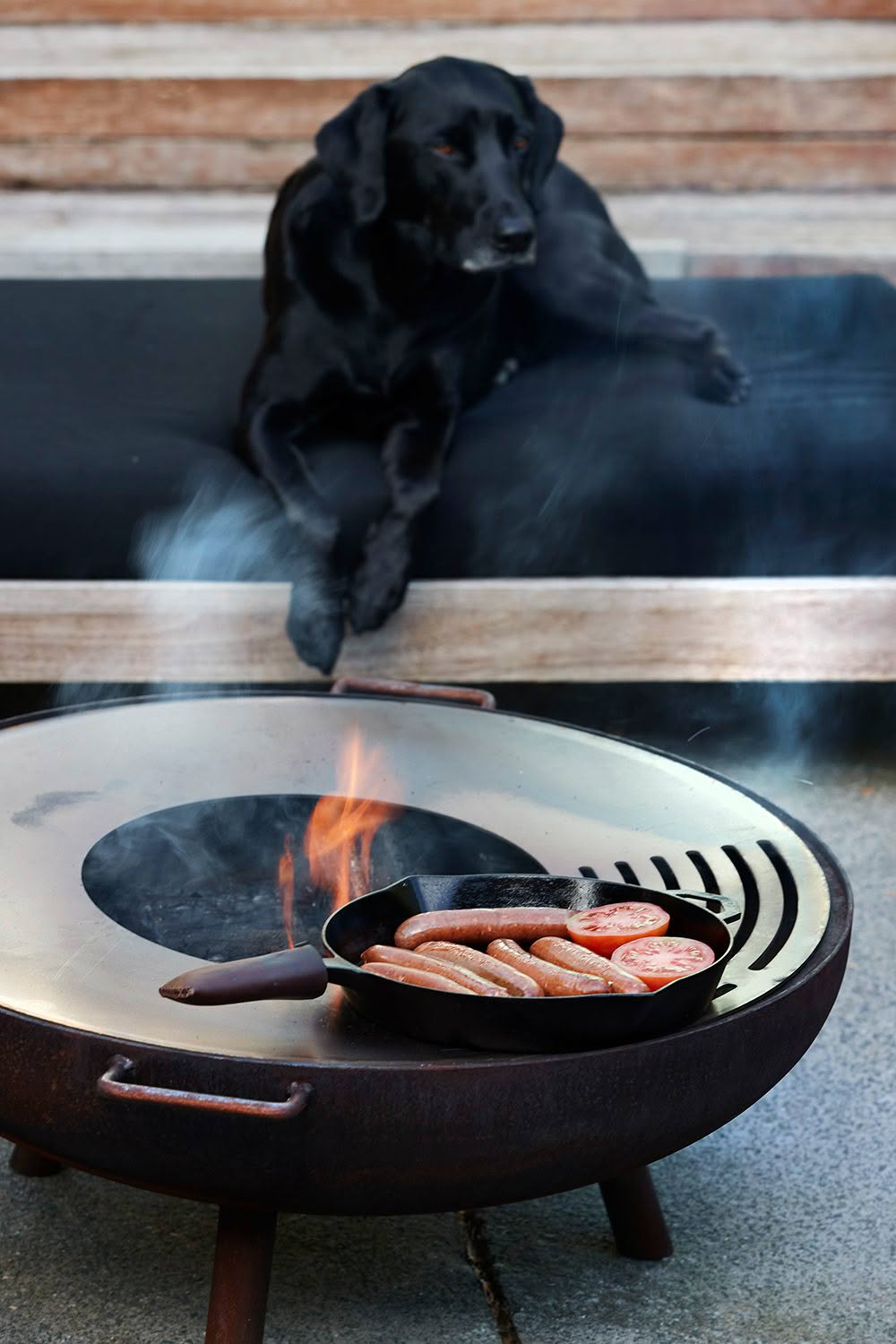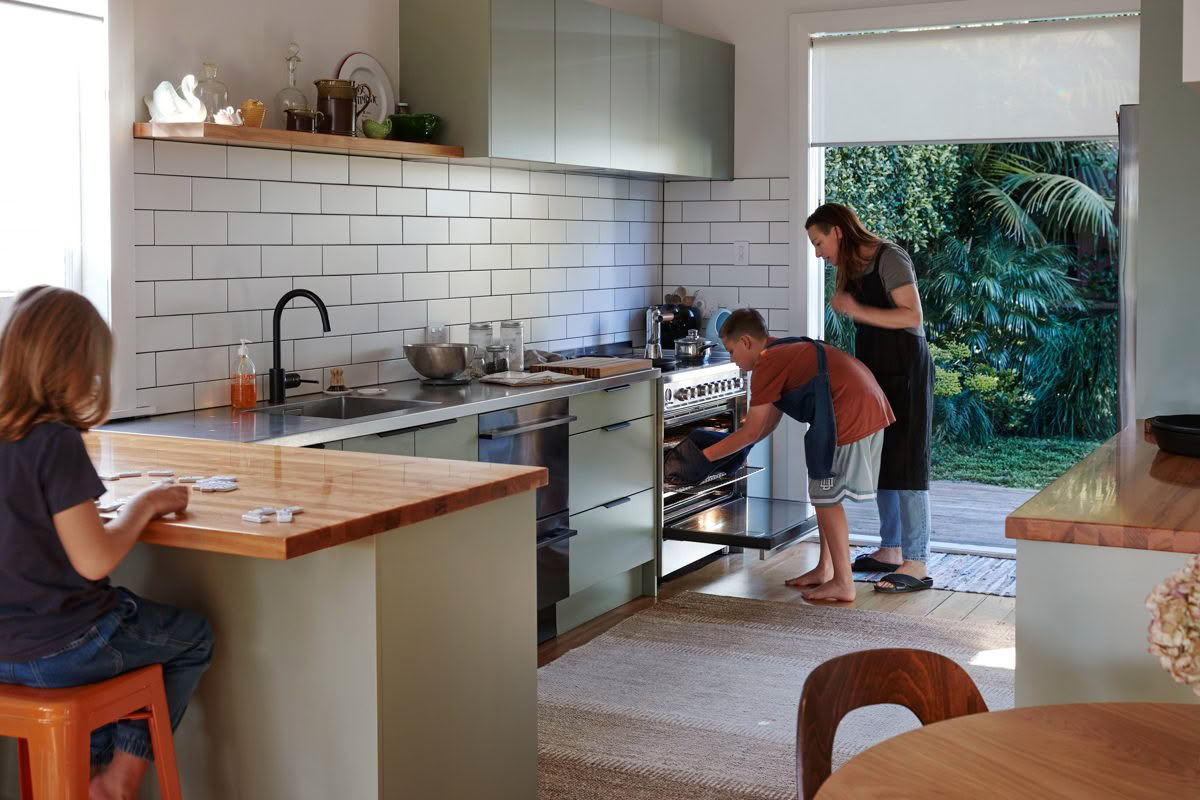Caring for cast iron
Kate and Levi Slavin have taken a ‘dying art form’ and given it a new lease of life with their cast-iron cookware collection.
Words Lucinda Diack Photos Jackie Meiring

They share their top tips for getting the most out of your cast-iron cookware
The more you use it, the better it gets.
Keep it dry and lightly oiled between uses. Ideally only wipe out with a paper towel or rinse in hot water or scrub with a coarse brush before drying and re-oiling. You can use soap if you really want to. After washing I like to warm the pan a little on the stovetop to make sure it is thoroughly dry and then the conditioning balm or oil properly soaks into the porous iron, making the seasoning nice and strong.
If you find things get stuck on – or you cook up a fish curry, then want to bake a brownie – the best way to reset your pan ‘flavour’ is with a stovetop salt season. Put the empty pan on the stovetop, warm up, place a thin layer of salt all over the cooking surface and let it cook on medium-high until it is smoking and the salt is going brown.
Use a wooden scraper to really rub the salt around, like an exfoliant for your pan. Any salt is fine – I like to use a combo of standard table salt and a little of the coarser kind. Then you turn off the heat, let it cool a little, throw out the salt and lightly oil all over.
Ideally use your iron to roast in the oven, as well as stovetop frying. The longer roasting times are great for the cast-iron seasoning as well as making the best roast vege ever!
About once a week I also lightly oil the underside of my pans. It is good to keep the surface that connects with your cooktop in good condition too.
When using induction, start off low and slow and make sure your pan size fits the hob you are using. Otherwise you get hot spots. If you heat it too quickly and unevenly the iron can warp. Sometimes it returns back to flat, but if it’s been blasted it can alter the iron long term and be hard to recover.
Don’t be afraid of cast iron if you are new to it. It is really durable and forgiving. Once you get used to the cast-iron rituals, it is super easy to look after and makes everything taste better.
Read more about Kate and Levi Slavin in our October – November (#117) issue.


